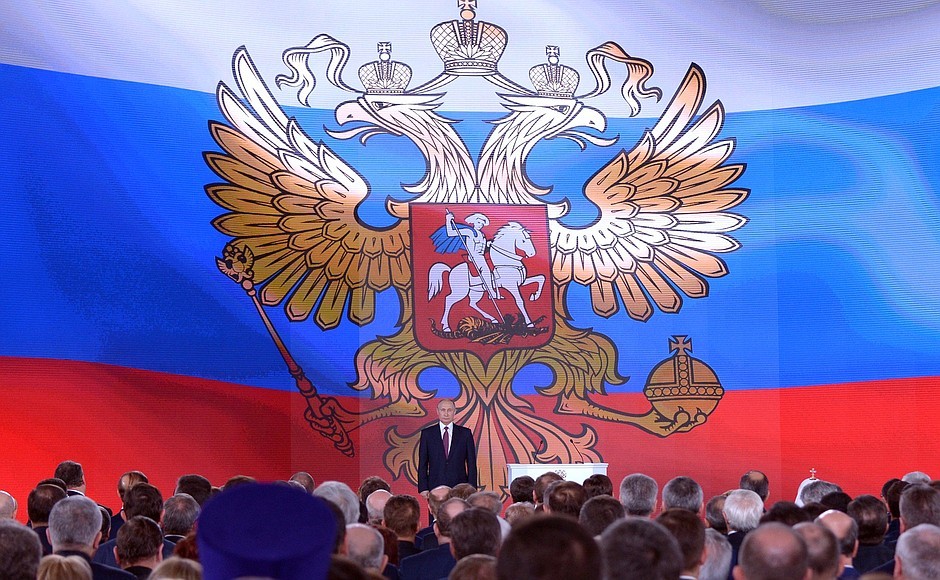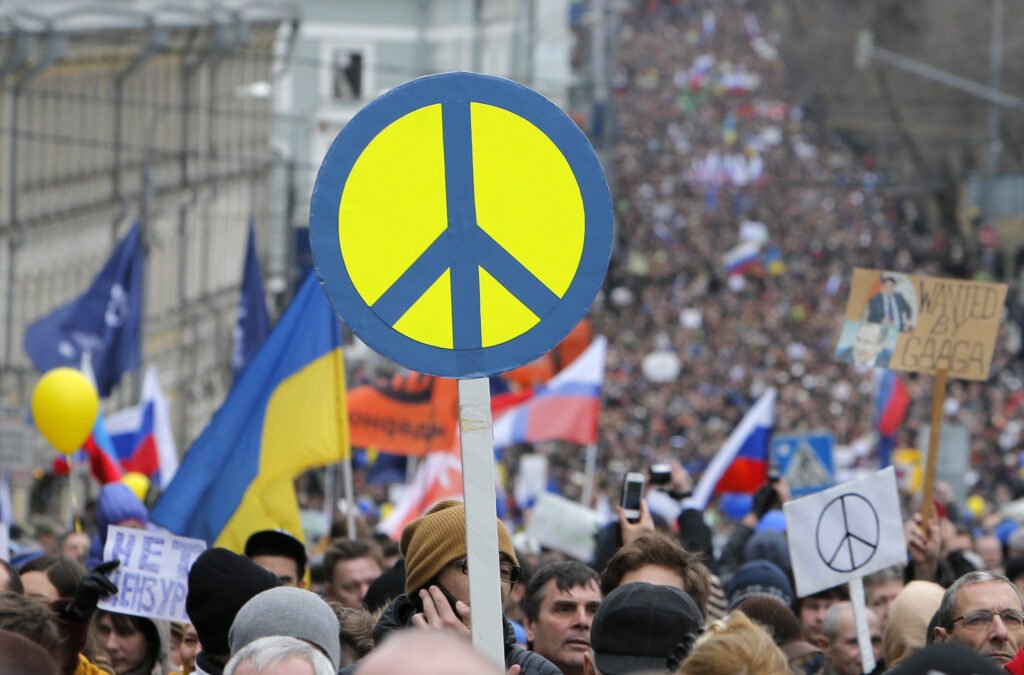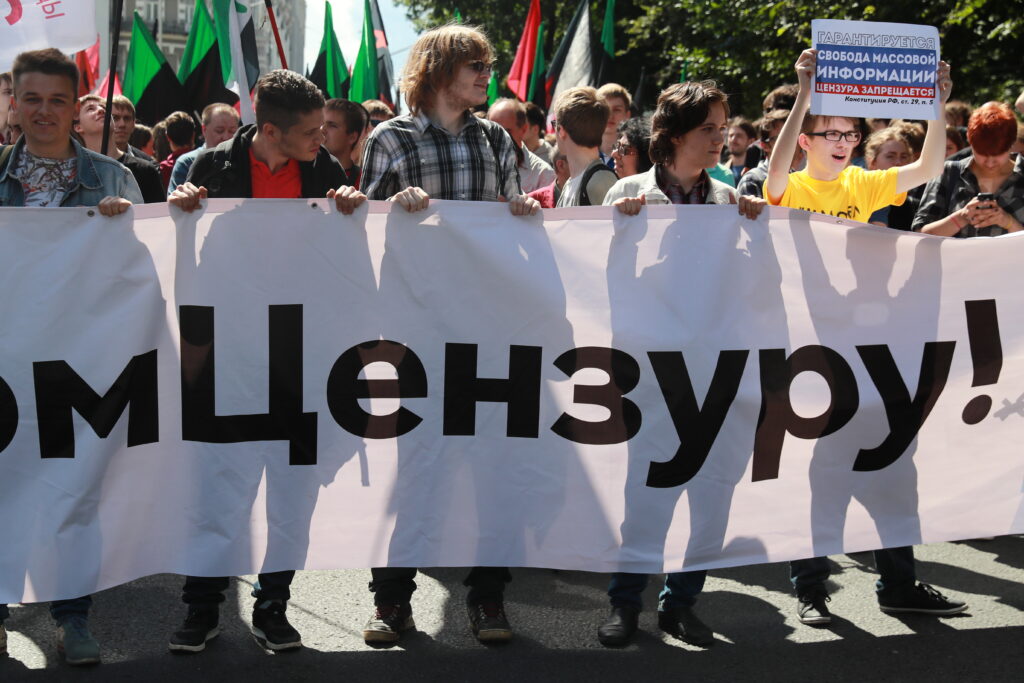For a long time, the idea of a “mysterious Russian soul” was perceived in the West, especially among lovers of classic Russian literature, if not with delight, then with a certain amount of benign curiosity and fascination. Russians themselves were also pleased to consider themselves special, different from others with their “soulfulness and depth”.
However, against the backdrop of the annexation of Crimea, the war in Ukraine, and the current crisis in Russian-Western relations, the stereotyped idea of Russian uniqueness is rather different. With regularity and repetition, the news media (both Western and Russian) promotes arguments that push forward an idea of a “nation of slaves”; Russians are seen as inherently stubborn conformists who consciously chose to fall in line with a belligerent leader. However, this logic does not take into account several important points. First, what is often attributed uniquely to bearers of Russian identity is in fact typical of certain group behavior under specific conditions. Secondly, all talk about consciously choosing belligerence mistakenly suggests that Russian society has all the information it needs to make a rational decision.
Down in the basement of Stanford University’s psychology department, Philip Zimbardo conducted his famous experiment back in 1971. The experiment has changed how psychologists today view the influence of social situations on the behavior of an individual: It became known as ‘the Stanford Prison Experiment. Zimbardo, who planned to study the experience of prison life under controlled conditions, randomly divided his volunteer students into two groups: One was assigned to play the role of prisoners; the other played the guards.
At the selection stage, researchers excluded the possibility of introducing personal deviations – all the selected volunteers showed approximately the same indicators in psychological tests; most shared predominantly pacifist views that were commonplace among students at the time. The experiment quickly took a dangerous turn; internalization of the roles took place: the “warders” turned into warders who enthusiastically scoffed at the “prisoners” in the same way as in real prisons (Zimbardo himself draws parallels with tortures of prisoners in Abu Ghraib) and those freedom-loving students of the 1970s fast became prisoners who reacted passively to any violation of their rights, although they should have realized that at any moment they could have escaped from this stressful situation.
Social psychologists and philosophers describe a whole series of psychological factors that cause people in certain situations to be complicit in “evil” or to commit “evil of inaction” (this is what Russian society is often accused of).
Firstly, the most powerful force for transforming behavior is the basic human need for belonging to a group: in order not to become an outcast, a person is willing to submit to the pressure of the group and new norms, and then rationalize it for themselves. In the Russian context, one can imagine that an experiment similar to the controlled Zimbardo experiment on the subjection of people is carried out nationwide. The Kremlin, possessing huge resources which it deploys for administrative and information pressure, is able to shape the image of the group “Russians” and consequently control what is required to belong to this group. It would be appropriate to recall the overhyped ratings of the support for the present ruling authorities, the voluntarily-forced mass actions in support of Putin, the propaganda disseminated by pro-government media aimed at discrediting the opposition. It is also important how the Kremlin shapes the image of the alien internal “other” through its alleged closeness to the external “other” (the West), the hostility to which is already sufficiently stable in the public opinion. Therefore, critics of the Kremlin are defined not as internal dissenters by pro-government media outlets, but as individuals who possess the identity of the other. Illustrative examples include lists of “national traitors” and the “fifth column” allegedly representing the interests of an external other disseminated by the pro-government “patriotic” niche media, or official lists of NGOs with a telling label of “foreign agents”, as well as attempts to challenge the “Russianness” of its opponents. Thus, through the information space, the idea is imposed that only those who by their identity are hostile external “others” or work by proxy for their interests can openly confront Putin inside Russia.
Secondly, an effective way of subjection is to create an image of the enemy. Zimbardo writes: “It all begins with the creation of stereotyped images of the “other” with the dehumanized image of the “other” as worthless or all-powerful, a demonic abstract monster that carries an all-out threat to our most precious values and beliefs. In an atmosphere of general fear, when the enemy threat seems inevitable, reasonable people start behaving absurdly, independent people submit to meaningless orders, peaceful people turn into soldiers. Expressive and ominous images of the enemy on posters, on television, on magazine covers, in movies and on the Internet are imprinted in the depths of the limbic system, the structure of the primitive brain, and this process is accompanied by strong feelings of fear and hatred”. In the experiments of social psychologists, other participants in the experiment became dehumanized “enemy”, while in the present-day Russia this mobilizing role is played by the West and by “internal enemies”. At the same time, in the situation of artificial increase of risks – including through the propagated risk of a global direct collision with an external “enemy” – the society often prefers inaction and preservation of the current situation, fearing that any change in the status quo can provoke aggravation of the situation. According to the sociologist Oleg Yanitsky, the normative ideal of a risk averse society is “security, so that society is no longer guided by the goals of achievement of better conditions (social progress), but to protection and avoidance of the worst”.
The third important mechanism that determines the subjection of an individual or a group is “power of authority.” At the same time, the authority can be both represented by a separate individual and a group. Solomon Asha’s research showed that a person, even realizing that the rest of the group is not right, in 70% of cases agrees with the wrong answers of the majority. The data of other important experiments in the field of blind submission to authority — most notably the experiments of Stanley Milgram and Albert Bandura — confirm an individual’s tendency to conformism in any number of situations, providing there is sufficient peer pressure or power of higher authority. In today’s Russia there is both the first (although the image of the unified majority is artificially constructed, but for the individual it seems quite real), and the second.
An array of data obtained from the research of social psychologists and philosophers generally confirms Hannah Arendt’s idea of “banality of evil”: in a certain context, surrounding factors prove to be stronger than the properties of the individual; under the compulsion of an imposing system, almost any individual and any nation is able to commit cruel acts, or indulge them with inaction. Thus, the behavior of Russian society is incorrectly interpreted through the prism of dispositional factors (they are predisposed to this, etc.). How the Russians are responding is in line with universal human psychology: Is absolutely typical behavior of people within given conditions of a sophisticated authoritarian system.
It is also wrong to analyze and interpret the behavior of people without analyzing the information they receive. For the vast majority of Russians, federal channels are still the main source of news; they form a significant part of their picture of the world. Being under the control of the authorities, these channels distort information so much that what for the rest of the world is undoubtedly Russia’s aggression and unacceptable behavior is presented to Russians as protection of national interests and defensive tactics. And loyal to the authorities today, the Russians, most likely, support not the real status quo, in which Russia is the aggressor and producer of global risks, but a fictitious and compelling status quo produced in the newsrooms of Ostankino.










